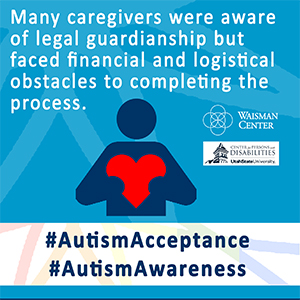Mid-life Social Outcomes for a Population-based Sample of Adults with ASD
April 10, 2018
![]() https://onlinelibrary.wiley.com/doi/abs/10.1002/aur.1897
https://onlinelibrary.wiley.com/doi/abs/10.1002/aur.1897

|
Adults with autism spectrum disorders (ASD) fall short of social outcomes of non‐ASD peers in mid‐life, as documented by currently published research. The aim of the current study was to extend what is known about social functioning, employment, independent living, and use of social services by examining details of the current life status for a population‐based sample of adults with ASD (mean age = 35.5 years, range = 22.2-51.4). We collected outcome data via direct assessment and informant report for 169 individuals. Three‐fourths of the sample had cognitive abilities in the intellectually disabled range. Social functioning outcomes, as a single measure, mirror those reported previously for other samples, including samples with a high proportion of individuals with normal range intellectual abilities, with 20% achieving the most independent outcomes and 46% requiring high levels of support across most life areas. Participant subgroups who achieved maximal outcomes represented a range of social and intellectual abilities for several outcome metrics. Participants used high levels of public and private supports, yet specific areas of clear, unmet need were also identified.







